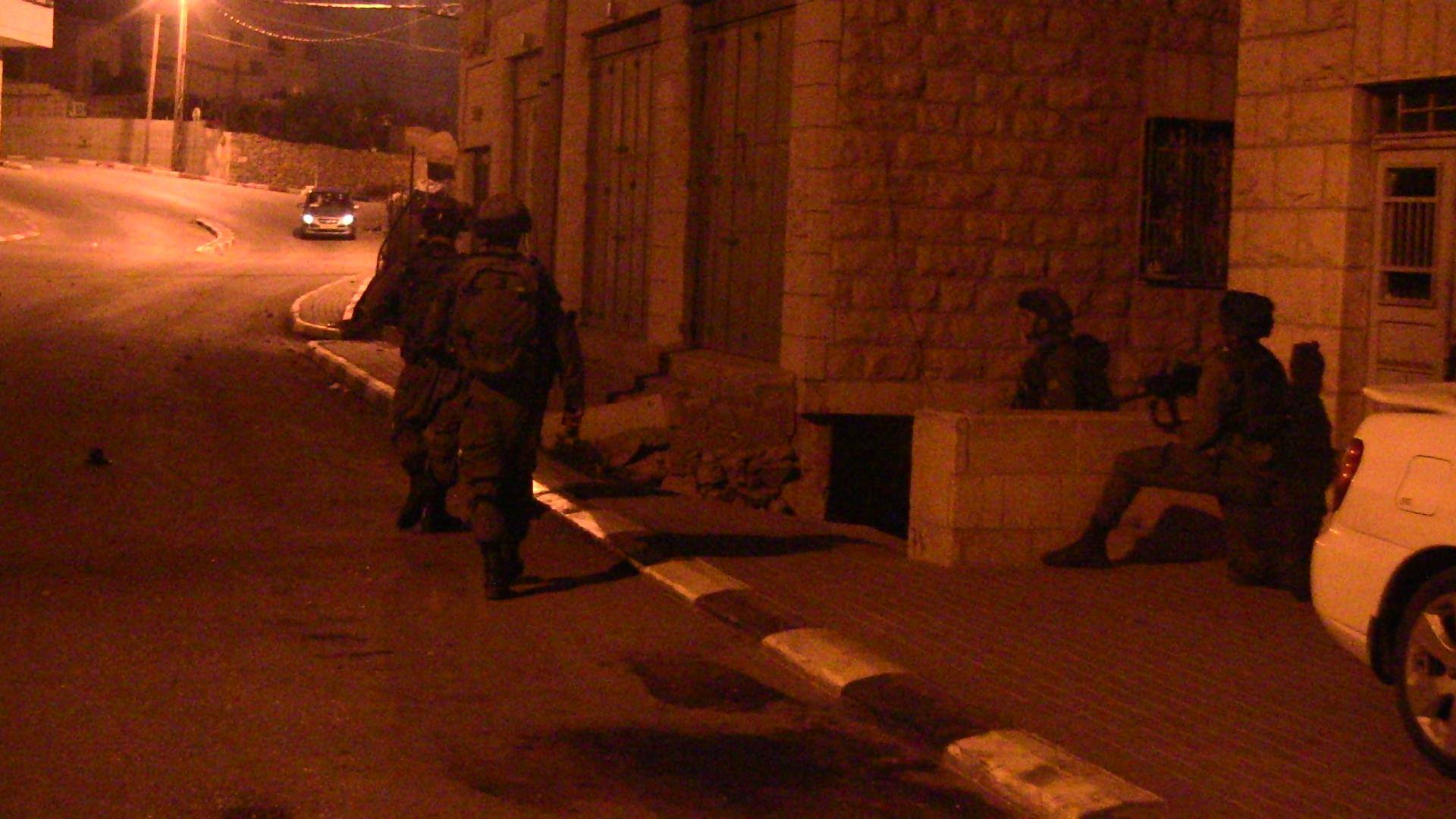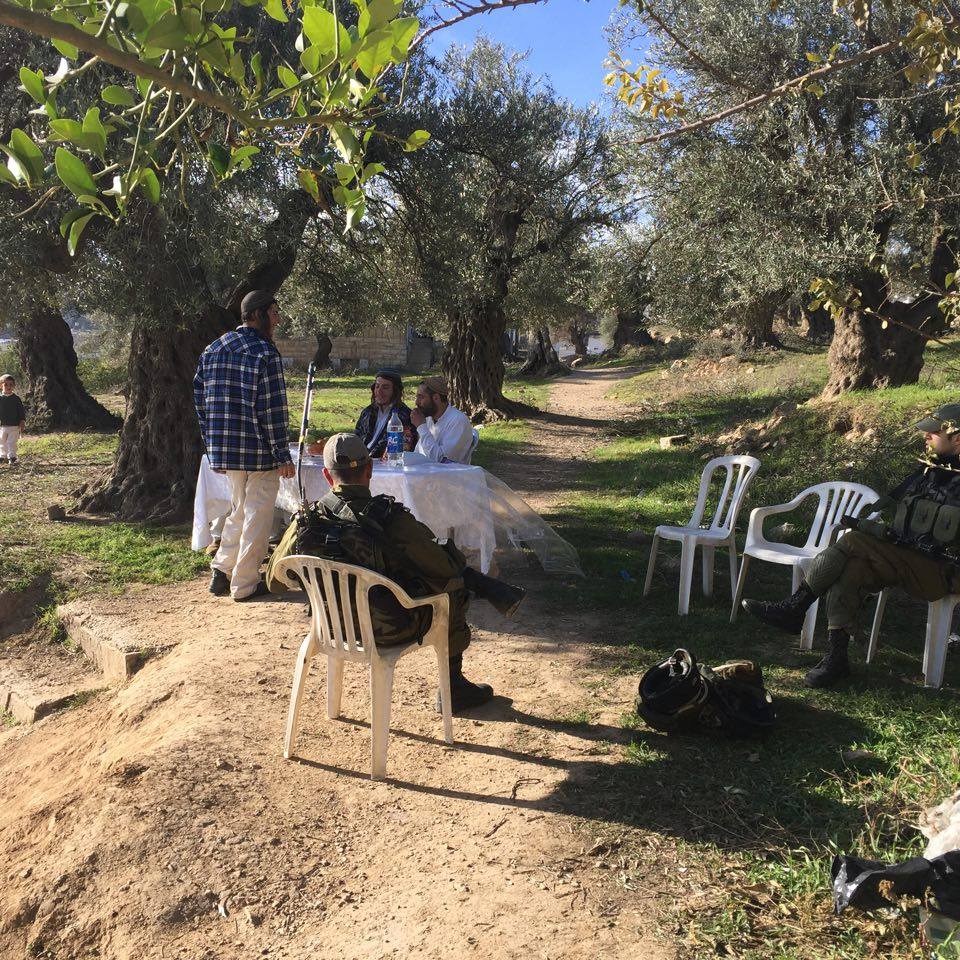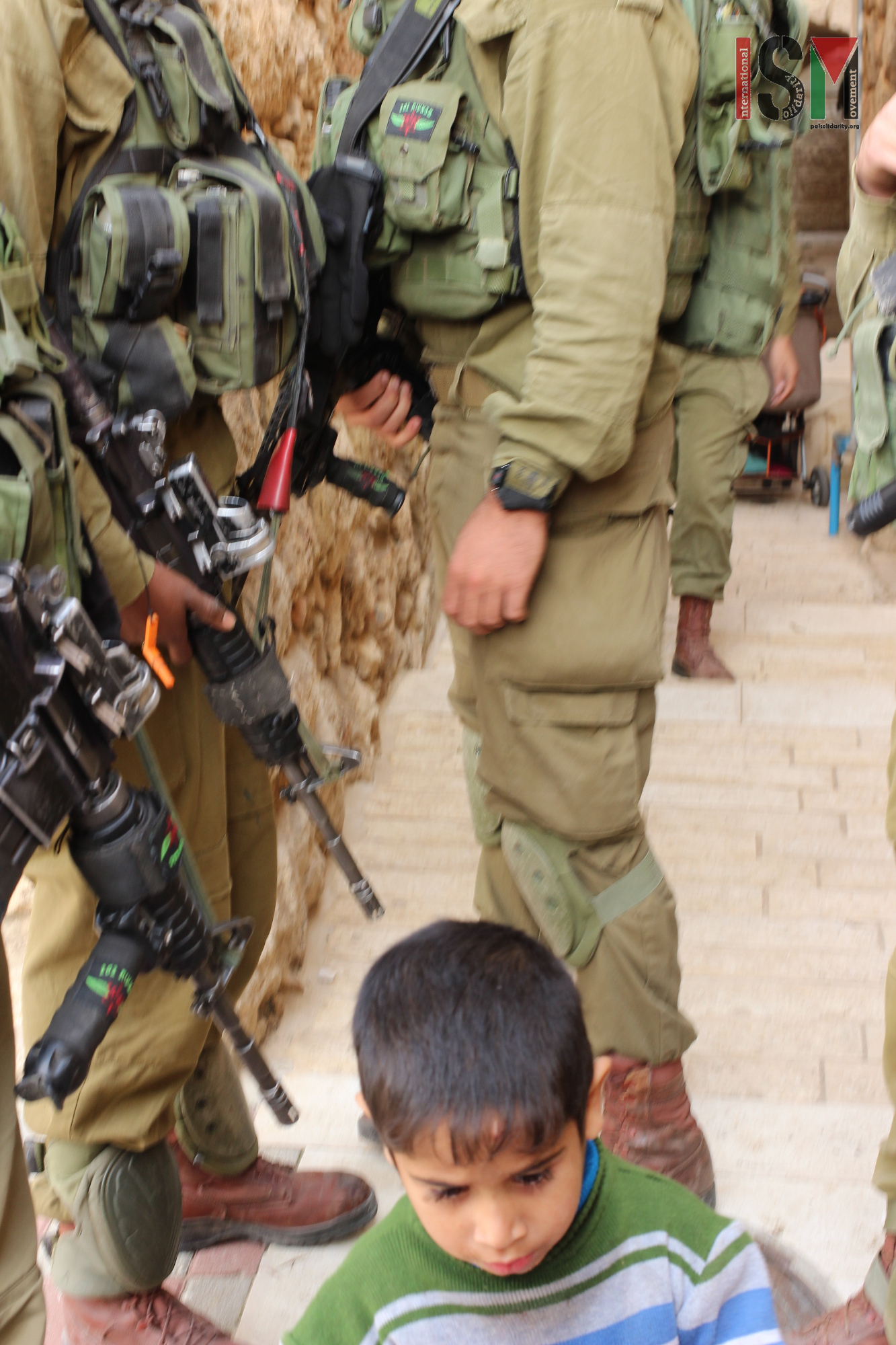Tag: Arrests
-
“We were walking home and they shot at us”
2nd December 2015 | International Solidarity Movement, al-Khalil team | Hebron, occupied Palestine On the evening of the 1st of December 2015, five Palestinian boys were shot at by Israeli forces with live ammunition on their way home to Tel Rumeida. The five boys – between the ages of sixteen and seventeen years – were on…
-
Arbitrary arrest of local activists as settlers lay siege to soumud house in Hebron
28th November 2015 | International Solidarity Movement, al-Khalil team | Hebron, occupied Palestine Yesterday night, Israeli forces arrested two activists from the local activist group Youth Against Settlement in occupied al-Khalil (Hebron). Illegal settlers, under the protection of the Israeli forces, then layed siege to the YAS center, the Soumud house, trapping everyone inside. Israeli…
-
Call from Palestine: Stop the execution of our children
27th November 2015 | International Solidarity Movement, al-Khalil team | Hebron, occupied Palestine We, the undersigned Palestinian political forces and organizations, appeal to local and international institutions, human rights organisations and democratic forces for immediate and decisive action concerning the execution of Palestinian children by Israeli occupation forces and settlers. To date, 18 Palestinian children…



